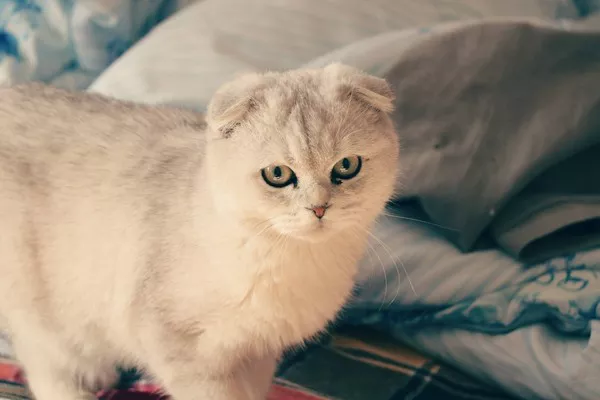Introduction to Balinese Cats:
Originating from the Siamese cat breed, Balinese cats are known for their striking appearance, intelligence, and sociable nature. With their luxurious, long coats and elegant bodies, they captivate the hearts of many cat enthusiasts. However, beyond their physical beauty, Balinese cats are beloved for their affectionate demeanor and strong bonds with their human companions. In this article, we will delve into various aspects of Balinese cat behavior, focusing particularly on their preference for physical affection, including being held.
Affectionate Behaviors
Balinese cats are renowned for their affectionate and loving nature. They thrive on human interaction and often seek out opportunities for cuddling and bonding. One of the most noticeable affectionate behaviors exhibited by Balinese cats is purring. Purring is a sign of contentment and relaxation in cats, and Balinese cats are prolific purrers. Whether they’re lounging on your lap or nestled beside you, the gentle hum of their purring can be incredibly soothing.
Another endearing behavior commonly seen in Balinese cats is kneading. This rhythmic motion, where the cat alternates pressing their paws against a soft surface, resembles a baking technique and is often accompanied by a relaxed, blissful expression. Kneading is believed to be a leftover behavior from kittenhood, associated with nursing and comfort. When a Balinese cat kneads on your lap or chest, it’s a sign of trust and affection, indicating that they feel safe and content in your presence.
Comfort with Handling
While Balinese cats are generally affectionate and enjoy human company, their comfort level with being held can vary from individual to individual. Some Balinese cats are naturally more tolerant of being held and cuddled, while others may be more reserved or prefer to express their affection in other ways.
Understanding a Balinese cat’s body language is crucial in gauging their comfort level with handling. Signs of relaxation and enjoyment include a relaxed body posture, purring, kneading, and gently rubbing against you. Conversely, signs of discomfort or stress may include tensed muscles, flattened ears, dilated pupils, and attempts to squirm or escape from your arms.
It’s essential to respect a Balinese cat’s boundaries and not force them into situations where they feel uncomfortable. Instead, gradually introduce handling and physical affection, allowing the cat to initiate contact and set the pace. Patience and gentle encouragement can go a long way in building trust and fostering a positive association with being held.
Socialization and Training
Early socialization plays a crucial role in shaping a Balinese cat’s temperament and behavior, including their comfort level with handling. Exposing them to various people, environments, and experiences during their formative weeks and months helps them become well-adjusted, confident cats.
Introducing gentle handling and positive reinforcement early on can also contribute to a Balinese cat’s comfort with being held. Encouraging interactive play sessions, providing plenty of opportunities for physical affection, and rewarding calm behavior can help reinforce positive associations with human contact.
Positive reinforcement training techniques, such as clicker training, can be particularly effective in teaching Balinese cats to associate being held with rewards and praise. By breaking down the desired behavior into manageable steps and rewarding each incremental progress, you can gradually increase the cat’s comfort level with being held while strengthening your bond.
Building Trust
Building trust with a Balinese cat is essential for fostering a strong, loving relationship. Trust is earned through consistency, patience, and respect for the cat’s individual preferences and boundaries.
Spending quality time together, engaging in interactive play, and offering treats and praise for desirable behavior can help strengthen the bond between you and your Balinese cat. Avoid sudden movements or loud noises that may startle or stress the cat, and always approach them calmly and gently.
Respect their need for personal space and allow them to come to you on their terms. If a Balinese cat seeks affection or willingly approaches you for cuddles, it’s a sign that they trust and feel comfortable in your presence. Conversely, if they retreat or show signs of discomfort, give them space and time to regroup.
Respecting Boundaries
Every Balinese cat is unique, with their own personality quirks and preferences. Some may enjoy being held for extended periods, while others may prefer shorter cuddle sessions or affectionate gestures from a distance.
It’s essential to respect each cat’s boundaries and not force them into situations that make them uncomfortable. Pay attention to their body language and vocalizations, and be responsive to their cues. If a Balinese cat shows signs of stress or agitation when being held, gently release them and allow them to retreat to a safe space.
By respecting their boundaries and acknowledging their individual needs, you can strengthen your bond with your Balinese cat and create a trusting, mutually rewarding relationship.
Health and Well-being
Regular handling and physical affection can have significant benefits for a Balinese cat’s health and well-being. Physical contact provides mental stimulation, reduces stress, and strengthens the bond between cats and their human companions.
Regular grooming sessions, including brushing their long coats and checking for any signs of injury or illness, can help maintain their overall health and hygiene. Additionally, handling allows you to monitor their weight, check for any lumps or bumps, and assess their general condition.
However, it’s essential to strike a balance and not overwhelm a Balinese cat with excessive handling or restraint. Respect their need for autonomy and provide opportunities for independent exploration and relaxation.
In conclusion, Balinese cats are cherished for their affectionate nature and strong bonds with their human companions. While they may vary in their comfort level with being held, patience, understanding, and respect for their individual preferences are key in fostering a positive relationship. By building trust, respecting boundaries, and providing gentle, consistent handling, you can enhance the well-being and happiness of your Balinese cat while enjoying the joys of their loving companionship.
Related Topics:























